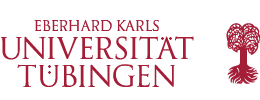Catalogue for Language Resources in a Developer's Version
The classification of resources is reflected in the search functions that base on structures found in the descriptions of resources, i.e. in the metadata. Thus, one can limit a search for resources on factors such as modality, language or genre. Depending on the selected restrictions also new structures may be derived. Annotation schemes, for instance, are not relevant for many resource types, but prove to be useful for corpora in terms of limiting the search space further down.
Within the NaLiDa project, the catalogue application, i.e. a Faceted Browser, was developed. The catalogue contained data stocks for testing.
In the second funding phase, we decided to stop further active development of the Faceted Browser. The metadata stocks of Tübingen are now harvested by the Virtual Language Observatory of the CLARIN project on a regular basis.



